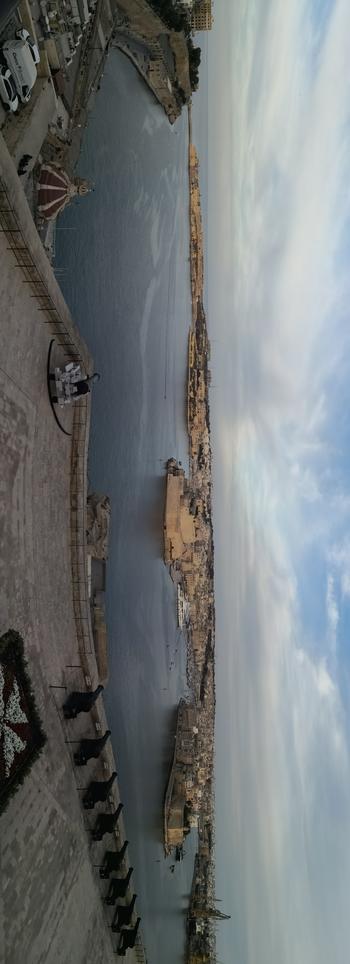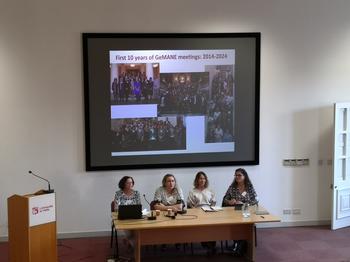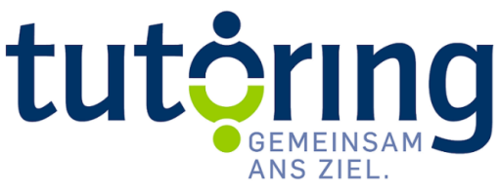Gender, Methodology and the Ancient Near East (GeMANE)
Every few years, a committee of experts in the field of Gender Archaeology in the Ancient Near East organizes the workshop "Gender, Methodology and the Ancient Near East", short GeMANE. It's aim is "to explore different methodological and theoretical approaches to the study of gender within the framework of ancient Near Eastern studies. The scope of the workshop includes textual, art historical and archaeological approaches, (including neighbouring disciplines) as long as the work contributes new insights into the study of gender in the ancient Near East in the broadest and most inclusive way possible"1.Researchers have met in Helsinki (2014), Barcelona (2017), Ghent (2019), online (2021), Helsinki again (2022) and Malta (2024).
Report on the 6th GeMANE in Malta, 8-11th April 2024
In April 2024, scholars from all over the world were invited to Valletta in sunny Malta to celebrate 10 years of GeMANE. Since its small beginnings in 2014, the GeMANE workshop has grown every turn and now stretches over four days of presentations from both experts and young scholars studying gender in the fields Assyriology, Near Eastern archaeology, art history and Egyptology.
The workshop started off with reflections on the field discussing the importance of intersectionality delivered by one of the longest standing committee members and pioneer in women studies of the Neo-Assyrian period, Saana Svärd. The ensuing panel thematized violence and vulnerability through various sources such as Bronze Age spindles, Sumerian texts and Neo-Assyrian reliefs before the panel on historiography offered new insights into the fascinating character of Gertrude Bell. The day was closed by the keynote lecture given by Diane Bolger from the university of Edinburgh on gendered and ambiguous figures in prehistoric Cyprus.
Ambiguity also marked the topics of the second day: the obsolescence of the concept ‘Third Gender’, the (non-)existence of eunuchs, the interpretation of beardless figures on reliefs and considerations on same-sex love composed the first panel. It was followed by a panel on non-binary gender with Ur-Nanše and hairstyles, decoding the ENigma of the gender(s) of the EN priesthood and reexamining the gala/kalu priests with a bowl fragment from Nimrud. The afternoon was dedicated to masculinities symbolized by snakes, nervous breakdowns, lions and beheadings. A tour of Valletta and a communal meal of Stuffat tal-Fenek, traditional Maltese rabbit stew, completed a long day.
The third day fell together with the end of Ramadan, which led to some troubles in reaching the campus in time. Upon arrival, interesting presentations on women in cult and law were held concerning Babylonian families, female witnesses and Egyptian investors. After lunch in one of the charming and steep side alleys, the transgressing of boundaries in Egyptian frescos, Middle Assyrian laws and the body of Ištar formed the last panel of the day. An early end allowed to visit one of the Neolithic temples scattered all over the island or the small archaeological museum in the heart of Valletta.
Weather worsening and wind picking up, the workshop unswervingly went into the fourth and last day about royal women in the Hebrew Bible, among the Kushites, in Mari and Hatti, the Hittite and the Neo-Assyrian empire. In the subsequent panel on body and beauty, the newest technologies allowing the establishment of word-co-occurrence patterns and word-embeddings to study the associations with certain terms in ancient Mesopotamia (on the example of genitals in Neo-Assyrian times) were particularly interesting. Missing voices built the final chord of the 6th GeMANE.
The GeMANE is unique in bringing together established scholars – honorable mentions are Ann Guinan, Agnès Garcia-Ventura, Frances Pinnock, Megan Cifarelli, Nathalie Naomi May, Omar N’Shea, Saana Svärd among others (see programme here) – with younger scholars, often PhD students, in an informal atmosphere where a real exchange of (sometimes controversial) ideas takes place at eye level. Furthermore, the most recent developments on gender methodology as well as the newest findings on both long-standing debates and formerly undiscussed materials are presented and subsequently published in the forthcoming proceedings. Thus, the GeMANE constitutes the pulse of gender research in the ancient Near East.
The next GeMANE (7) will take place in Rome, February 2026.






